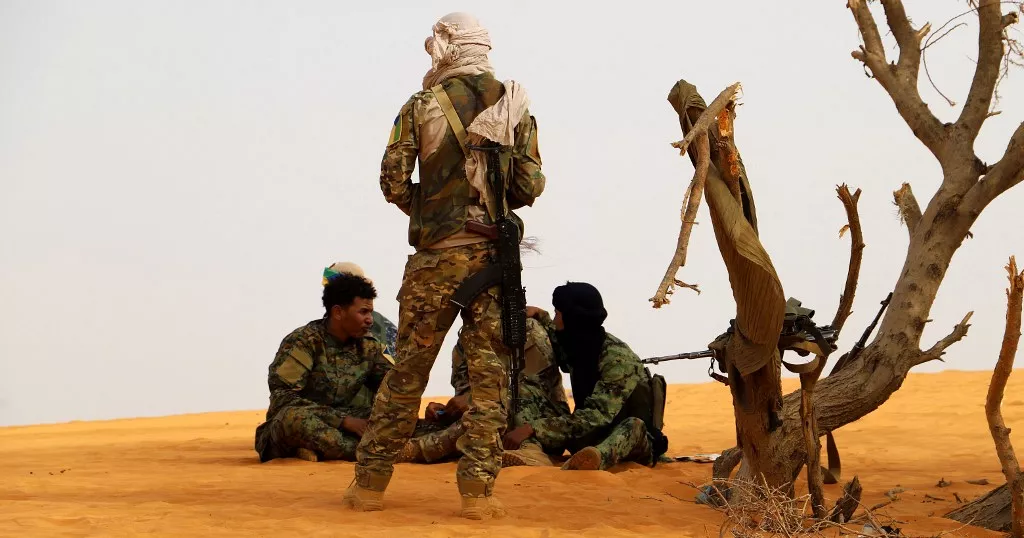
Mali’s army advanced closer on Saturday to the strategically significant northern town of Kidal, currently under the control of Tuareg separatist and rebel groups, according to army and political sources.
Since assuming power in a coup in 2020, the military rulers of the African country have prioritized the restoration of sovereignty over all regions, with Kidal potentially becoming a crucial battleground.
“We are a few dozen kilometers (miles) from Kidal,” disclosed an army officer to media, requesting anonymity. “We are continuing our progress to secure the whole territory.”
Two local elected representatives, also speaking under the condition of anonymity due to the sensitivity of the matter, reported ongoing fighting near Kidal.
“Fighting has started — there’s a lot of shooting,” one source stated, noting that a significant presence of fighters from the Russian Wagner group, called in by the ruling junta two years ago, was on the ground.
Another local official said “civilians are fleeing the city. We have to expect a lengthy conflict.”
Anticipating a potential attack after days of airstrikes, separatist rebels in Kidal severed the telephone network on Friday.
On Thursday, the army declared on social media the commencement of what it termed “strategic movements aimed at securing and eradicating all terrorist threats in the Kidal region.”
A sizable military convoy, stationed at Anefis approximately 110 kilometers to the south, initiated its journey towards Kidal.
Tuareg rebels rekindled hostilities in August, and the 25,000 residents of the desert region town have been preparing for a potential confrontation since then.
The Tuaregs initiated an insurgency in 2012, dealing significant defeats to the army before consenting to a ceasefire in 2014 and eventually reaching a peace deal in 2015.
The uprising in 2012 coincided with insurgencies led by radical Islamist groups.
The withdrawal of a UN peacekeeping mission, following the army’s assumption of power, has contributed to the prevailing instability.
